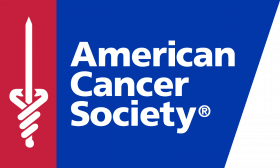Has overall responsibility for leading the Risk Factors Surveillance activities in the Risk Factors and Screening unit of the Surveillance & Health Services Research Program. The Unit updates and publishes Cancer Prevention & Early Detection (CPED) Facts & Figures annually, provides risk factors and screening data for ACS Regions and leadership to guide cancer control planning and measure progress, contributes to updating and publishing ACS’s screening guideline in the CA-A Cancer J Clinicians, and designs, analyzes, and publishes original research on risk factors and screening by demographic, socioeconomic and health system using population-based surveys.
The Scientist of the Surveillance of Risk Factors & Screening Unit leads & serves as the primary internal expert on cancer risk factors surveillance, with a focus on patterns of domestic and global tobacco use. He or she may also serve as an expert on other cancer risk factors including obesity, nutrition, physical activity, alcohol, and ultraviolet radiation,. He or she also oversees development and maintenance of databases for risk factors as available from the National Center for Health Statistics (e.g. NHIS, NIS-TEEN, NHANES etc.) and Centers for Disease Control and Prevention (e.g. the BRFSS, BRFSS-SMART, etc.), and National Cancer Institute (e.g. the CPS-TUS). Also, he or she would develop collaborative working enterprises with colleagues within the Intramural Research Department, Cancer Control Science, and ACS-CAN to identify policy-relevant research topics.
- May supervise the work and training of Master-level Epidemiologist and Interns. Provides overall direction, prioritizes research proposals, collaborates on analyses, and contributes to preparation of scientific publications.
- Directs and conducts descriptive and analytic studies to test specific research questions or hypotheses and identify demographic, socioeconomic and health system factors associated with risk factors for cancer, with a focus on tobacco.
- Contributes to CPED in collaboration with other researchers in Surveillance and Health Services Research and Corporate Communications, ensures timely production of these reports on a regular schedule.
- Respond accurately and in a timely manner to statistical and technical questions referred to Risk Factors. These often include high profile and short deadline and accurate response to media inquiries.
- Prioritizes research needs and opportunities based on organizational priorities and resources.
- Identifies and evaluates new data resources for risk factors research, including data linkage opportunities (such as those pertinent databases from Census, Economic or mortality files) to assess cancer control policies in the states and/or nationally.
- Identifies analytic strategies and statistical approaches applicable to risk factors and screening.
- Provides expert consultation to Cancer Control, ACS Regions, and other national and field staff on the sources, use, limitations, and interpretation of risk factors. Represent ACS as media resource when needed.
- Publicizes ACS’ studies’ findings by speaking at professional meetings and to the media; consults and interprets results of epidemiologic studies with the media as a recognized expert in the field.
- Collaborates with international (WHO, IARC) and other national surveillance organizations (i.e., CDC, NCI, and others) and academic institutions
- Service contribution is measured by level of participation in advisory committees and editorial boards, collaboration on research proposals, peer reviews, scientific manuscripts and research proposals, and collaboration on research grants.
- Excellent interpersonal and oral and written communication skills. Ability to work independently and collaboratively in team setting.
SPECIALIZED TRAINING OR KNOWLEDGE:
- Extensive knowledge of cancer epidemiology, including methods, study design, and survey data.
- Working familiarity with SAS and SUDAAN. Knowledge of basic statistics with good quantitative skills.
- Publication productivity is measured by number of publications, authorship position (first, second, or third author), and standing of journals in which articles are published.
We are committed to providing staff with fulfilling opportunities to learn, grow and make an impact in their local communities. We offer staff a generous paid time off policy; medical, dental and retirement benefits, and professional development programs to enhance staff skills.
